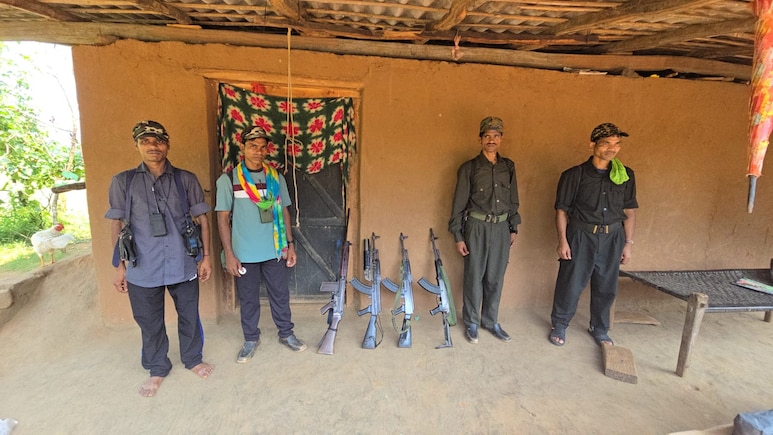
The Bastar region, long synonymous with Maoist insurgency, witnessed a watershed moment on October 16 and 17. In what is being described as the largest-ever surrender in India's internal security history, over 150 Maoists, led by Central Committee member Rupesh alias Satish Kofa, laid down their arms and joined the mainstream.
But Rupesh, a veteran of more than four decades in the banned CPI (Maoist) organisation, insists this was not a surrender. Speaking exclusively to NDTV in Tadokot village, where the Maoists rested after crossing the Indravati River at Uspari Ghat, Rupesh said, "We are giving up our weapons, but we are not surrendering. We are changing the way of struggle for the people."
Rupesh, who once led several key military operations in the Bastar division, revealed that disillusionment within the Maoist ranks had been growing for years. "Many senior leaders realised that it was no longer possible to fight the people's war with weapons," he said.
He disclosed that former general secretary Nambala Keshav Rao alias Basavaraju had also suggested that the party must "lay down arms and decide future policies through democratic means." However, internal opposition and infighting shattered the organisation. "Basavaraju himself died in an encounter in Abujhmad. That marked the beginning of the end," Rupesh said.
In a statement that underscores a fundamental ideological shift, Rupesh clarified that those who have now joined the mainstream will not become part of any government security operation. "We will not take up arms again, not even for the government. The fight for people's rights will now be constitutional. We will go among the people, listen to their problems, and work for them through lawful and peaceful means," he said.
Rupesh made a direct appeal to his comrades still active in the jungles of Abujhmad, Bijapur, and Sukma to follow suit. "Under the present circumstances, it is impossible to fight for people's rights through violence. The time has come to give up arms and adopt the constitutional path," he urged.
Witnesses described the sight as surreal a long line of Maoists, some still in uniform, slowly walking across the Indravati River carrying rifles that they would soon lay down. Many appeared weary but resolute. For the first time in decades, Bastar saw the fading echo of a gun replaced by the sound of change.
Experts call this a decisive moment in India's decades-long battle with Maoist extremism. With a Central Committee member walking away from the gun, the message to remaining cadres is clear the ideology that once drove the movement is now eroding from within.
As the sun set over the Indravati, the rifles that once symbolised rebellion lay silent, perhaps for good, and a new chapter of Bastar's history began, not in blood, but in hope.
(With inputs from Vikash Tiwari)
Track Latest News Live on NDTV.com and get news updates from India and around the world

